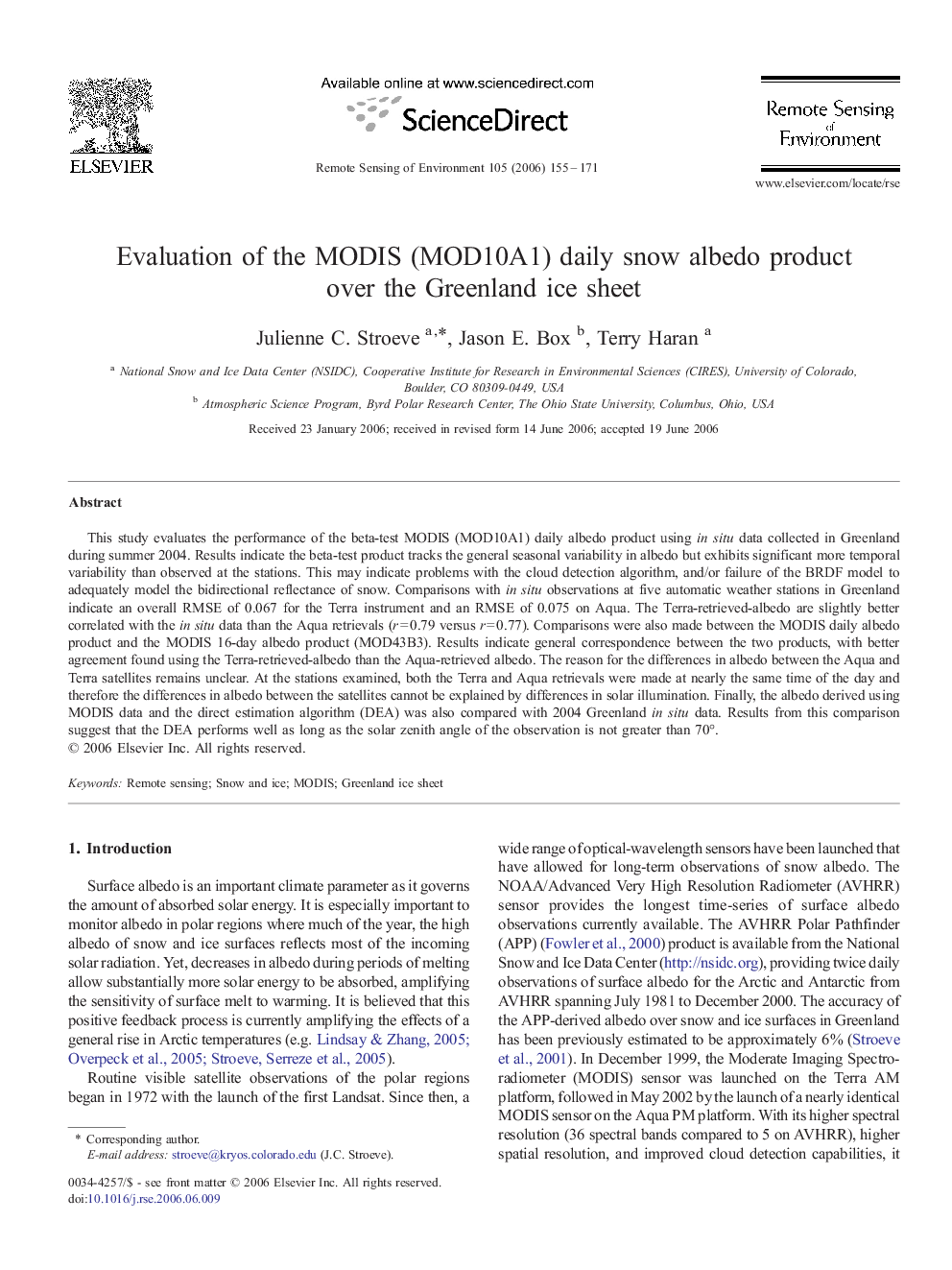| Article ID | Journal | Published Year | Pages | File Type |
|---|---|---|---|---|
| 4461010 | Remote Sensing of Environment | 2006 | 17 Pages |
This study evaluates the performance of the beta-test MODIS (MOD10A1) daily albedo product using in situ data collected in Greenland during summer 2004. Results indicate the beta-test product tracks the general seasonal variability in albedo but exhibits significant more temporal variability than observed at the stations. This may indicate problems with the cloud detection algorithm, and/or failure of the BRDF model to adequately model the bidirectional reflectance of snow. Comparisons with in situ observations at five automatic weather stations in Greenland indicate an overall RMSE of 0.067 for the Terra instrument and an RMSE of 0.075 on Aqua. The Terra-retrieved-albedo are slightly better correlated with the in situ data than the Aqua retrievals (r = 0.79 versus r = 0.77). Comparisons were also made between the MODIS daily albedo product and the MODIS 16-day albedo product (MOD43B3). Results indicate general correspondence between the two products, with better agreement found using the Terra-retrieved-albedo than the Aqua-retrieved albedo. The reason for the differences in albedo between the Aqua and Terra satellites remains unclear. At the stations examined, both the Terra and Aqua retrievals were made at nearly the same time of the day and therefore the differences in albedo between the satellites cannot be explained by differences in solar illumination. Finally, the albedo derived using MODIS data and the direct estimation algorithm (DEA) was also compared with 2004 Greenland in situ data. Results from this comparison suggest that the DEA performs well as long as the solar zenith angle of the observation is not greater than 70°.
